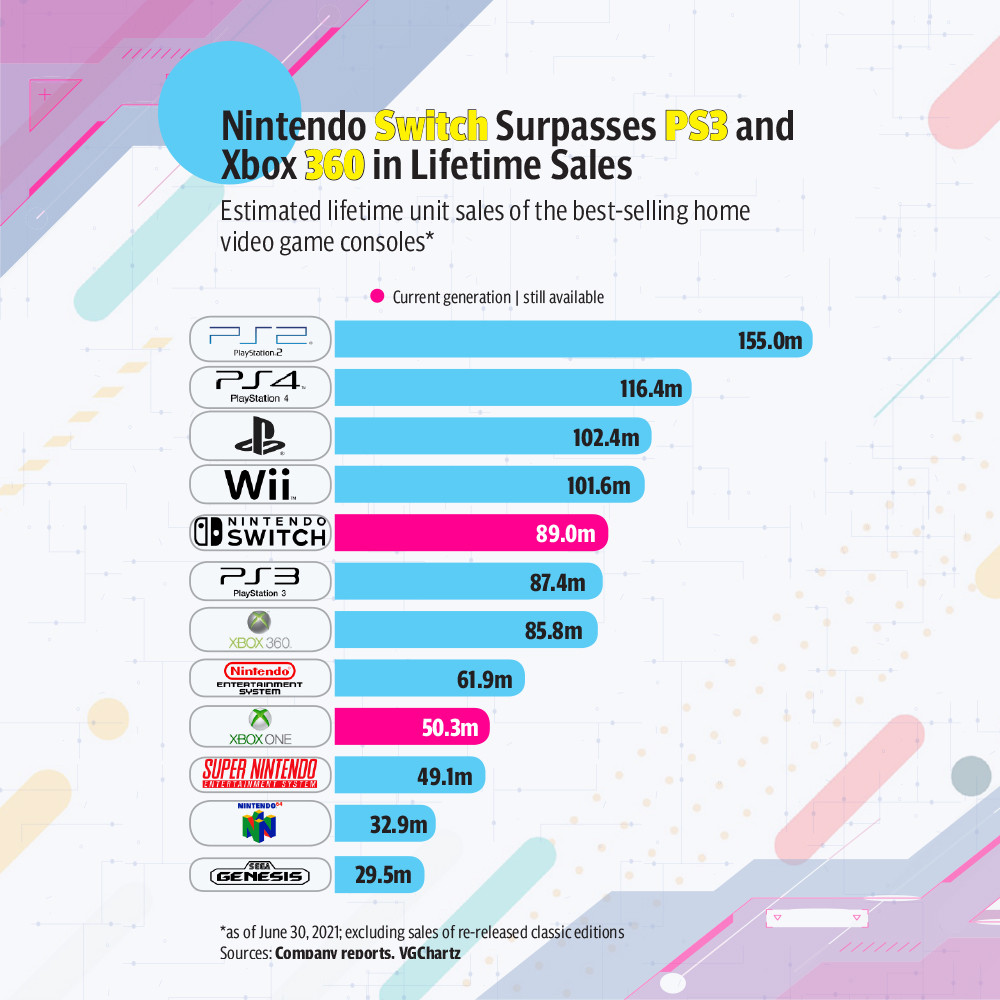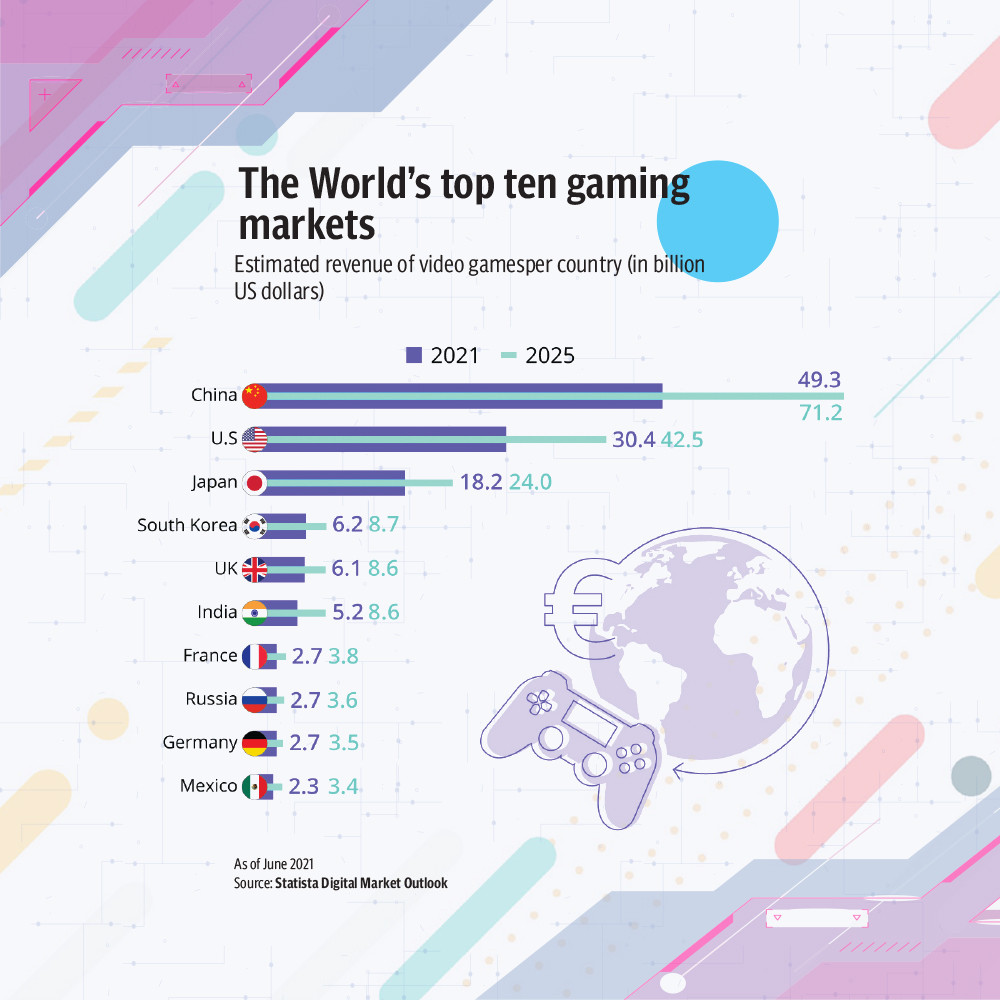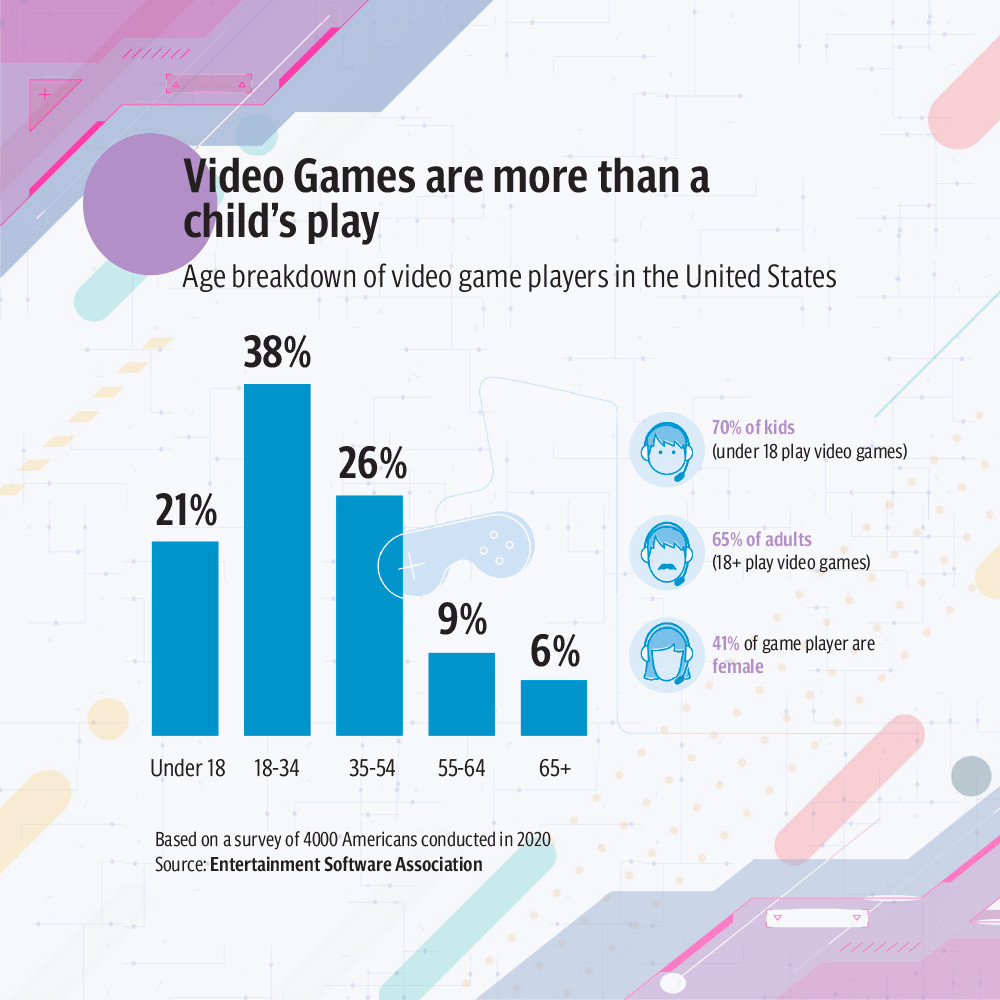The global Covid-19 lockdowns, imposed in March 2020, dented a handful of industries including hospitality, travel and transportation. At the same time, a few segments such as video conferencing, digital banking and healthcare grew by leaps and bounds.
One of the lesser-known industries that recorded massive growth is the video gaming segment. Although the shift of Pakistani consumers from pirated to original games from 2008-2013 marked the growth of this sector, the videogame industry of Pakistan hit new height during the lockdown.
Adeel Khan, who works for an insurance company in Pakistan, stated that revived his habit of playing videogames in March 2020 after a few years’ hiatus. “When the nationwide lockdown was imposed last year, I had ample free time at hand hence I retrieved my PS4 from the store room and renewed my hobby of playing games,” he said while talking to The Express Tribune. He lamented that he had to give up on the habit in 2017 after he secured a job that demanded six days a week work. He added that with his job still going remote, he was able to take out time to play games.
Similar is the case of Rehan Siddiqui, a software developer, whose firm went 100% work from home and now operates remotely. “With work from home in effect, I save around 3-3.5 hours per day in commute hence I resort to play videogames in that time,” he said. “The amount of hours I played per week nosedived after I graduated from university and got a job that demanded nine hours of work per day.” However, he considered himself fortunate to be able to recoup the habit amid Covid-19.
Siddiqui recalled having a huge backlog of unfinished games waiting to be played. He said he was able to clear the backlog when the nationwide lockdown was in effect and his workplace had essentially given him holidays.
Rizwan Alam, who owns a videogame shop in Karachi, stated that his business boomed as soon as Covid-19 struck Pakistan in February 2020. “People had a lot of free time because businesses were either closed or operating from home therefore people needed some kind of recreation and a huge chunk of them resorted to video gaming,” he said. “It was surprising that the ratio of people who were buying their first video game console was substantially high.”
He highlighted that the months under question coincided with releases of a handful of big and highly anticipated titles, which further expanded the business. Talking about people who were already practicing this habit before Covid-19 surfaced in the country, he said that they enhanced their purchases because usually people hold their plans to buy a game until they take a vacation so they have time to finish it.

“Finally, the lockdown was followed by the summer season (May-June) in which all digital game stores offer substantial discounts and prompts people to purchase games that are on their bucket list,” he said. “In these two months, the businesses reached sky high and I was out of game cards that are used to purchase games digitally.”
It is pertinent to mention that a few video game companies (such as Sony and Microsoft) do not accept payments from debit cards of Pakistani banks hence a person is forced to purchase a game card to buy a game.
Moving on to talk about the physical gaming disks, Alam said that his import shipment, which usually consists of one carton of a particular video game, used to finish in 3-4 days. “Before the pandemic, each carton took somewhere between 15-25 days to exhaust but during Covid-19, I faced difficulty in meeting demand of consumers,” he said. “Due to halt in global trade, I was unable to order new game copies from abroad and customers, who loved to own physical editions were also forced to buy digital games.”
He recalled that he had to employ two new delivery persons, in addition to one that his shop already had, to fulfil the growing demand of consumers.
Alam disclosed that despite the fact that his shop remained closed for over a month, his profit grew substantially while serving customers from home.

Moreover, he stated that videogames on mobile phone gained further traction all over Pakistan which was reflected from spike in demand for Google Play Store gift cards at his enterprise. “People who were either unable to afford the consoles or were averse to buying one, started playing videogames on their smartphones and games like PUBG and Fortnite recorded a huge jump in number of users,” Alam said. “If you look at the overall trend of electronic industry, the sales of televisions, video game monitors and graphic cards soared as well.”
He was of the view that mobile phone video games had given a boost to the sector because a massive proportion of non-tech savvy Pakistanis are also aware of games such as PUBG and Fortnite. In addition, the video game Youtubers of Pakistan have helped change the mindset of people, he said.
The businessman highlighted that massive demand of videogame consoles, trade restrictions and production hurdles also drove up the prices of the merchandise.
He stated that PS5 was released by Sony in November 2020 and still Sony was unable to produce enough units to meet the global demand which had inturn driven the price of the console higher. “The new consoles by Sony and Microsoft are scarce even in countries such as US and Europe which are priority nations for the two companies,” he said.
Talking about the current state of his business, he said that demand had partially receded compared to the jump witnessed in March-June 2020 however it was still higher compared to pre-Covid time. He added that most of the sectors in Pakistan have returned to working from office, which has once again dragged a massive chunk away from video games.
He also deliberated on the incidence of steep rupee devaluation and held the view that the segment had lost a huge amount of consumers due to it. He recalled that in until 2017, people spent Rs35,000 on average on a console and around Rs8,000-10,000 on games. “Following the jump in price of US dollar from 2019 onward, the cost of majority of consoles soared past the affordability of a common man,” he said. “They are unable to buy consoles because the least demanded consoles are being sold at around Rs42,000 mark.”
People kept a budget to practice this activity however the industry endured a significant dent due to weakening of the local currency. He was of the view that inflationary pressures at the present time was restraining people from buying the costly consoles. “The new consoles by Sony and Microsoft are priced over Rs100,000 in Pakistan and they are out of reach for even those who are earning modest incomes,” he lamented. “The videogame sector was among the industries worst hit by rupee devaluation.”
Talking about the future, he was hopeful that the uptrend would persist because a lot of people entered the videogame segment over the past one and the half a year. “Moreover, with a high proportion of population aged 20-40 playing videogames, the concept that they are solely aimed and marketed for children is diminishing,” he said. “The mindsets are finally changing and people are adopting the habit of playing videogames for recreation.”
Global companies are investing millions of dollars in this field and lately, Amazon, Netflix and Facebook have also shared plans to enter into videogame industry. These companies are aware of the potential and they expect its scope to widen due to which they are ready to invest in it. He added that videogames can prove to be significant recreation for physically disabled and elderly people who are unable to take part in other kinds of activities.
Detailing about the overall, videogame content creator Souban Najib said that the market share of videogame industry was negligible in Pakistan.

“Although it is considered a luxury now due to sharp spike in prices on the back of rupee devaluation but still there is a huge scope for this industry,” he said. “Its potential is reflected from the fact that people are still purchasing videogames in high volumes despite the prices of consoles averaging at over Rs100,000 and new games being available at Rs8,000-9,000.” He also pointed out that while dollar is rising day after day, the amount of people who enjoy playing videogames is not falling by high proportion. Many retailers import around 20 units of current generation videogame consoles (which are priced at exorbitant levels) and manage to sell off all of the stock.
Being a reviewer of videogames on Youtube, Souban flagged lack of sponsorships a major problem for the segment. He lamented that small creators belonging to videogame segments were unable to secure sponsorships due to which they were forced to either forego playing some videogames at launch or are unable to play them altogether.
Videogame reviewers in regional countries and western nations easily gain sponsorships because people consider it an industry unlike Pakistan where it is looked down upon. Moreover, he added that load-shedding was also a huge issue because it damages the videogame consoles. “There are two types of load-shedding ie scheduled and unscheduled. We can be keep our videogame instruments safe from scheduled power cuts however unscheduled load-shedding can happen anytime therefore there is no escape from it,” he said. Unscheduled load-shedding can corrupt the saved game data, damage consoles and brick them.
When asked what steps could be taken to improve this segment, he stressed dire need to turn this segment into an industry rather than a form of entertainment.
Giving examples of India and China, he said that their respective governments were working on this industry and as a result, Microsoft and Sony had opened offices in these two counties which helped stabilise prices and enables local transactions on these platforms.
He also called for incentivising this industry to help it grow by leaps and bounds. Promotion is the need of the hour and the government should promote videogame tournaments all over the country.
Souban further stressed that there was a need to raise awareness and change mindsets to people in a bid to apprise them that this is not a childish hobby.
“There is a need for public to take interest in this area,” he said.
He added that there was no dearth of local talent pertaining to video game publishing however local publishers were scarce in number because the talented youth, which possesses expertise in this area, is working for foreign video game companies.
Pakistanis are working for foreign companies and helping them with videogame publishing, he said. Souban added that the increase in number of local publishers would take time and it will rise as the scope of the industry widens.
He hoped for a better future of the overall industry.

Moving on to talk about videogame collectibles, he said this trend had not gathered traction in Pakistan because it was a costly hobby.
“Only die hard videogame fans buy the merchandise offered by companies because it is usually expensive,” he said. He lamented that rupee devaluation further propped the prices of the merchandise upward and hit the niche segment of the videogame industry as well.
Finally, he said that the recent wave of cryptocurrency mining had hiked the prices of graphic cards due to which, the consumers of this industry were adversely affected. Graphic cards are pre-requisite for PC gaming and jump in their prices saw people moving to alternate platforms.
Mehtab Qureshi, owner of Platinum Series, said that the trend of video gaming had risen after Fawad Chaudhry had announced that Pakistan was making efforts to enhance its competitiveness in esports.
Qureshi, whose company organises videogame tournaments, said that securing sponsorship was getting easier because people had finally begun to see the potential of videogame industry.
“Colleges allow us to host events because they are aware of the scope of this sector,” he said.
He was optimistic that the industry would expand in the years to come and Pakistan would excel in the area of Esports.

